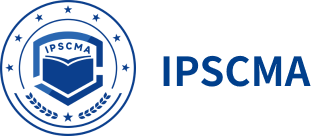In the context of the continuous restructuring of the global supply chain, the demand for high-quality product selection managers has risen sharply. According to McKinsey's 2023 Global Supply Chain Report, more than 76% of enterprises are accelerating their digital procurement transformation, among which product selection management capabilities are regarded as a key breakthrough. In the face of the opportunities and challenges under the new development pattern of dual circulation, the supply chain selection manager certification launched by ISM (International Institute for Supply Management) is becoming an important standard for leading industry talent training.
At present, the global supply chain is undergoing profound changes. According to the World Bank, the global supply chain management market will reach $28.9 trillion in 2023, with an average annual growth rate of 16.4%. In this context, there is a shortage of professionals with the ability to systematically select products. According to the 2023 Supply Chain Talent Development Trend Report released by Hudson, a human resources consulting company, more than 65% of companies have a talent gap in the position of product selection manager, of which the high-end talent gap rate is as high as 83%.
The post-pandemic supply chain restructuring has accelerated the urgent need for enterprises to digitally transform product selection management. According to a recent study by Deloitte Consulting, companies that adopt digital product selection management have an average inventory turnover rate increase of 31% and a 18.5% reduction in procurement costs. As a result, the value of professionals with digital product selection capabilities continues to rise, and ISM certification has become an important criterion for measuring the professional ability of talents.
The ISM Supply Chain Selection Manager certification is one of the most authoritative qualifications in the field of supply chain management recognized worldwide. The certification system is based on a global perspective and integrates the application capabilities of cutting-edge technologies such as artificial intelligence and big data analysis. According to official ISM data, the median annual income of certified practitioners is 25%-40% higher than that of non-certified practitioners, and the career development path is broader.
The certification curriculum closely follows the development trend of the industry, covering core modules such as supplier evaluation, category management, risk control, and data analysis. In particular, the course has added innovative content such as ESG (Environmental, Social and Governance) selection standards and blockchain traceability to help participants establish a complete knowledge system of modern product selection management.
In practice, ISM certification is a significant practical guidance value. Taking a Fortune 500 manufacturing company as an example, after the introduction of the ISM certification system, the procurement team's product selection efficiency increased by 43%, and supplier management satisfaction increased by 56%. Another case is a cross-border e-commerce platform, through the introduction of ISM certified talents, the comprehensive optimization of the product selection process has been realized, and the annual procurement cost has been reduced by 22 million US dollars.
The certification course places special emphasis on the development of practical skills, and students need to complete practical links such as real-life case analysis and mock negotiation. According to statistics, students who complete the certification can bring 15%-20% of the procurement cost optimization space to enterprises on average, and significantly improve the resilience of the supply chain.
Looking ahead, as the global supply chain landscape continues to evolve, the role of product selection managers will become more important. The World Economic Forum predicts that by 2025, more than 80% of companies will digitally transform their selection management processes. This means that professionals with ISM certification will continue to enjoy a competitive advantage in the market. At the same time, with the rise of "specialized, special and new" enterprises and the upgrading of the industrial chain, the demand for high-quality talents will be further expanded. It is expected that the annual salary growth rate of selection managers with ISM certification will remain in the range of 12%-15% over the next three years, which is much higher than the industry average.
In the critical period of deep adjustment of the global economic pattern, obtaining the ISM supply chain selection manager certification is not only an important booster for personal career development, but also a strategic choice for enterprises to improve their supply chain management capabilities. Through systematic learning and practice, students can master advanced product selection management concepts and tools, and create sustainable competitive advantages for enterprises.
